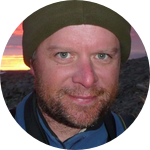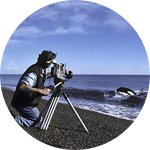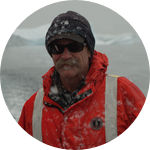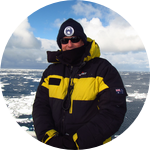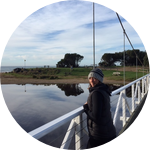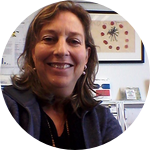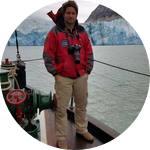About This Project
To properly conserve a species, you must first of all understand it. There is currently no population estimate or ecological understanding of killer whales in Australian waters. With the development of an open access database, contributions from Citizen Science and expertise from the scientific community, we can use sophisticated analyses to determine population abundance which will give us a baseline conservation status for this species.
Note: All donations are in U.S dollars.
Ask the Scientists
Join The DiscussionWhat is the context of this research?
Australian killer whales are currently poorly understood. We know next to nothing of their population numbers or ecology in our waters. This is an astounding fact given their charismatic profile and importance as the ocean's top predator.
Studies in the northern hemisphere have shown the importance of the killer whales in the health of marine ecosystems. Without this apex predator in coastal waters of Australia, the marine ecosystem could be compromised.
In the absence of dedicated field studies, it is our intention to use Citizen Science to bring together as much information as is available to help scientists better understand this species and achieve a conservation listing for killer whales in Australia.
What is the significance of this project?
The killer whale is currently listed as "Data Deficient" meaning there is inadequate information to assign a conservation listing for the species in Australia. We hope to change this through answering important scientific questions such as: How many killer whales inhabit Australian coastal waters? What are the prey preferences of these animals? and What, if any, areas of significance exist for the species? The answers to these questions will help us identify key threats to the species and provide robust data to assist in decision making at a management level. These actions will in turn lead to a well informed conservation benefit for the species.
What are the goals of the project?
Our ultimate goal is to provide well informed data to wildlife managers in order to achieve a conservation outcome for Australian killer whales. To achieve this we propose to establish an open access online database that will provide a portal for colleagues and citizen scientists to report sightings and submit images of killer whales along the Australian coastline. The next phase is to upload all historical data gathered from a variety of sources to the online database. Finally, using experts and sophisticated analytical software we will analyse all data which will result in producing a robust population estimate for the species.
The open access nature of the entry level of the database will allow citizen scientists to view basic data and images as well as attempt fin matching.
Budget
The establishment of an online open access Australian Killer Whale Photo Identification Catalogue (AKWPIC) database will enable Citizen Scientists to upload sightings information and imagery to a centralised point. These data will then be available to the research team for analysis and inclusion in the formal database and photographic identification catalogue. Funds are required to cover costs associated with the development database and migration of historical data into the online system. A computer system upgrade is essential and will allow for streamlining of data collation and management, photo identification processes and image archiving. Travel funds will be used to fly the database manager from Melbourne to Hobart to oversee the final stages of the database development as well as supervise and verify the migration of all data into the database, receive tuition and test the system.
Endorsed by
Meet the Team
Affiliates
Affiliates
Affiliates
Team Bio
The Killer Whales Australia team has been hand selected based on the requirements of our core work. Each team member brings a unique and valuable skill set that assists us in achieving our goals. Currently we have expertise in field operations, fin identification, database management and diet analysis. All team members met during fieldwork, at conferences or through common networks. We pride ourselves on our ethical approach to our work and always encourage transparency and collaboration.
David Donnelly
I am an Australian cetacean researcher based in Melbourne, Victoria with a strong passion for marine science and conservation. I have been collating images and sightings data on killer whales since 2002. Using these data, I with the Killer Whales Australia team, have been working with collaborators towards improving our understanding of Australian killer whales and achieving a conservation benefit for the species. Outside of killer whales, I have 21 years experience in cetacean research throughout Australia, New Zealand, the South Pacific and Antarctic waters. I have been fortunate enough to have had the opportunity to work alongside some of the most highly respected marine mammal scientists in the world. I enjoy working with like-minded people on structured projects with sound conservation outcomes.
Courtney Andrews
I am an American Marine Biologist based in Melbourne, Victoria with a strong passion for all wildlife, marine science and conservation. Being in Australia since 2008 I have been working with other marine scientists to form the Killer Whales Australia team. We have been working with collaborators towards improving our understanding of Australian killer whales and achieving a conservation benefit for the species. Outside of killer whales, I have various other experience with all types of animals including Blue Whales, Humpback Whales, Dolphins, and even African animal research.
Dr Margie Morrice
A marine ecologist with a deep interest in understanding how species will respond to a changing, and likely more unpredictable, environment. Recent projects have focussed on detecting trends in marine animal (marine mammal, turtle, krill) distribution and abundance, and linking these to weather and ocean processes at ranges of scales. I am also interested in developing rapid assessment techniques for measuring health in marine predators and tracking this over time. This interest in health now extends to human population health and developing knowledge in areas to build individual and community resilience using a systems thinking approach.
Josh McInnes
Josh McInnes has spent his whole life following marine mammals along the Pacific Coast. Growing up on Vancouver Island British Columbia Canada, Josh has spent the last decade studying the movements and behaviour of transient (Bigg’s) killer whales. His passion for killer whales encouraged him to develop the Transient Killer Whale Research Project. The project is a student-based citizen science initiative to observe and study mammal hunting killer whales along the Pacific coast. Josh also works as a Marine Science Educator at the Bamfield Marine Sciences Centre, and aids in international research ranging from Eastern Australia, Sir Lanka, and Russia. Currently Josh serves as the Research Coordinator for Marine Life Studies located in Monterey Bay California where he is focusing on pelagic odontocetes.
Project Backers
- 78Backers
- 113%Funded
- $5,208Total Donations
- $66.77Average Donation
